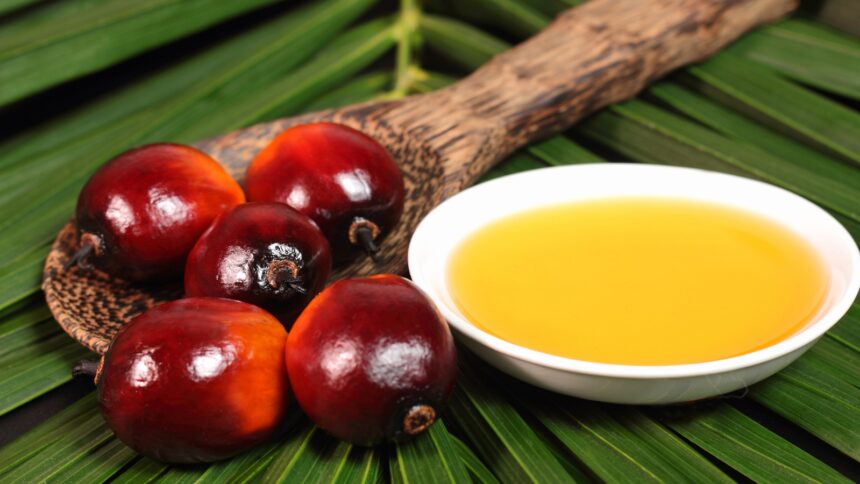India is the most populous country in the world, with a population exceeding 1.46 billion people. The rapid population growth presents significant opportunities for potential growth, particularly in the demand for both food and non-food products across the nation. Thus, it is essential to develop strategies and policies through a holistic and comprehensive approach to ensure security in both food and non-food sectors including energy.
In the food sector, edible oils are a staple in the Indian diet, commonly used for cooking, frying and food processing. However, India relies heavily on imports of edible oils to meet its growing demand taking into consideration the domestic production can only satisfy a fraction of the total need, resulting in India becoming the largest importer of edible oils in the world and the top importer of palm oil.
Palm oil plays a crucial role in supporting the demand for edible oil in India as it is the most widely produced edible oil in the world, accounts for about 35% of global vegetable oils production. The unique properties of palm oil make it a functional oil in various food applications and a valuable ingredient for the food industry because it enables an enormous range of manufacturing processes at no health risk to consumers. Palm oil has better oxidative stability and is resistant to the formation of oxidised polymers, making it the preferred choice for cooking oil in India.
One of the health-related concerning palm oil in India is associated with the claim that palm oil is unhealthy due to its high level of saturated fatty acids. This claim is misleading and creating negative image for palm oil as a food source and food ingredient. Palm oil contains a balanced proportion of unsaturated and saturated fatty acids at about 50% each. Studies showed that palm oil behaves more like a monounsaturated fat and has no adverse impact on blood cholesterol levels. In addition, scientific evidence has confirmed that moderate consumption of palm oil is no worse than other cooking oils.
More importantly, palm oil does not require hydrogenation for use as a fat component in food, avoiding the formation of fatty acids which have been proven to have detrimental effects on health. The Food Safety and Standards (Prohibition and Restrictions on Sales) Second Amendment Regulations, 2021 of India stipulated that all food products in which edible oils and fats are used as an ingredient should not contain industrial fatty acids more than 2% (by mass) of the total oils/fats present in the product, on and from 1 January 2022. Therefore, palm oil and its products are good alternatives to replace fatty acids for formulation of fatty acids-free food products.
Red palm oil, which is commercially available, is rich in phytonutrients, including carotenoids, tocols (tocopherols and tocotrienols), phytosterols and squalene which have gained significant attention due to their nutritional benefits. It is the richest natural source of carotenoids, particularly alpha- and beta-carotene, biologically active pro-vitamin A and a powerful antioxidant. Palm oil also contains tocotrienols, antioxidants that are several times more potent than tocopherols and have been proven scientifically to possess anti-inflammatory and cholesterol-lowering properties. Therefore, the consumption of nutritious red palm oil can provide beneficial antioxidants to the Indian population, supporting better overall health.
Palm oil is also an important raw material for non-food applications due to its versatility. Oleochemicals industry is one of the industries that relies on the use of palm oil as raw materials in a wide range of industrial and consumer products to replace petroleum-based chemicals. The physical and chemical properties of palm-based oleochemicals enable the manufacturing and production of many products such as personal care products and household products. The growing demand driven by consumers’ increasing preference for “natural” products will support the use of palm-based oleochemicals which are renewable and biodegradable alternative to petroleum-based chemicals. The demand for oleochemicals in India is expected to grow in tandem with the positive economic growth and socio-economic development.
Palm oil is also the most widely used feedstock for the production of biodiesel, with the share of about 32% of the global production. This reflected its crucial role in supporting global energy security. It is therefore important for India to leverage on the use of palm oil as a renewable and sustainable energy source.
Indonesia and Malaysia, the two largest palm oil producing countries, are committed to produce sustainable palm oil compliance to international and national standards, as well as committed to international agenda on combating climate change and global warming. Both countries have put in place policy framework and regulations to ensure the sustainable development of the oil palm industry balancing the conservation of forest and biodiversity.
The implementation of mandatory national sustainable certification schemes namely, Indonesian Sustainable Palm Oil (ISPO) and Malaysian Sustainable Palm Oil (MSPO) are important milestones of the industry, making palm oil the only vegetable oil subjected to stringent sustainable requirements vis-à-vis other vegetable oils. The industry focusses on increasing productivity through good agricultural practices and better planting materials without opening new land.
The continuous improvement, technological advancements and innovation, coupled with the supports of relevant stakeholders including the Governments of palm oil producing countries have driven the positive development of the industry. The positive prospects in India are expected to be a pivotal growth frontier for the oil palm industry.
About the Author:
is the Director of Strategy and Policy of the . She graduated from the University of Malaya, Malaysia with a Bachelor of Science (Major in Applied Chemistry and Minor in Statistics) and Ph.D. in Chemistry. She has more than 20 years of working experience in the Malaysian oil palm industry. Dr. Puah has authored and co-authored more than 180 publications in journals, book chapters, technical publications and reports as well as presentations in conferences and seminars at the national and international levels. She has five (5) patents filed and granted based on her research findings in the palm oil research including one technology that has been commercialised.
Disclaimer:
This content is sponsored and does not reflect the views or opinions of IE Online Media Services Pvt Ltd. No journalist is involved in creating sponsored material and it does not imply any endorsement whatsoever by the editorial team. IE Online Media Services takes no responsibility for the content that appears in sponsored articles and the consequences thereof, directly, indirectly or in any manner. Viewer discretion is advised.








